Niamey Climate Forest: towards a climate-resilient city through tree planting
Niamey, the capital of Niger, is one of the hottest places on earth. At the same time, it also experiences unprecedented population growth. It is therefore particularly vulnerable to the effects of climate change. In the Niamey Climate Forest Project, VITO developed together with ACMAD and CO2Logic an effective strategy against heat stress, based on a scientifically underpinned tree planting campaign and smart financing mechanisms.
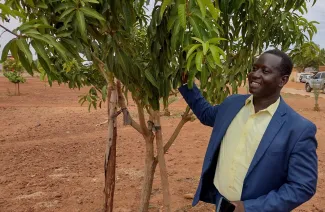
The Niamey Climate Forest project is Niamey's hope in times of climate change. As financial constraints and technical obstacles hampered local tree planting campaigns, the Niamey Climate Forest project was set up. A strategic approach based on scientific research and capacity building combined with new funding mechanisms makes the difference.
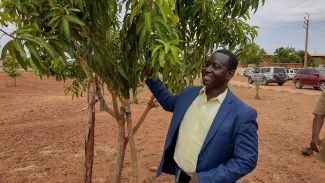
Toudjani Hassoumi, landbouwingenieur en stadsambtenaar speelt een prominente rol bij de onthulling van plannen voor boomaanplantinitiatieven.
Microclimate modelling
VITO used its urban microclimate models to highlight the crucial role of urban green infrastructure as a means of mitigating the dangers of climate change. "By producing scientifically robust and convincing evidence that was accessible to all, the project secured broad support from all those who help shape Niamey's urban planning and development strategies" says Nele Veldeman, researcher at VITO.
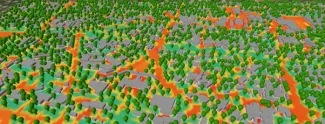
Resultaten van de microklimaatmodellering met hoge resolutie
From modelling to ownership
The project partners also trained local organisations in microclimatic monitoring. They mapped the urban climate using sophisticated but user-friendly devices such as Wet Bulb Globe Temperature meters (heat stress), thermal cameras and soil moisture sensors. The results showed that trees can significantly reduce the temperatures. By providing the local community with the knowledge and the tools needed to effectively assess the impact of urban greenery while managing trees, the project fostered a sense of ownership and stewardship among residents.
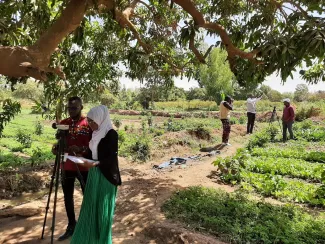
Monitoring van het stadsklimaat en de gunstige invloed van bomen door lokale vrijwilligers die getraind zijn in het gebruik van WBGT-meters.
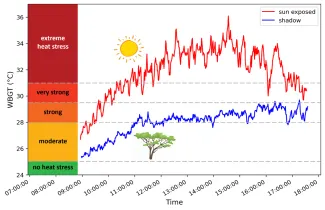
Meetresultaten tonen de impact van bomen op het bestrijden van hittestress
Carbon credits
In addition, the project studied how much carbon the urban trees can store and how this could be marketed in so-called carbon credits. This innovative approach not only encourages tree planting, but also highlights the economic benefits of investing in green infrastructure.
Crucially, the project leveraged the evidence regarding the role of urban trees as a climate resilience measure to bolster applications to international climate finance programs.
“By aligning with global climate objectives and showcasing the tangible benefits of investing in urban green infrastructure, Niamey is able to unlock the funding needed to accelerate tree planting efforts and enhance climate resilience city-wide” concludes Nele Veldeman.
Partners

This project is funded by International Climate Finance from the Government of Flanders and own funding of project partners.


